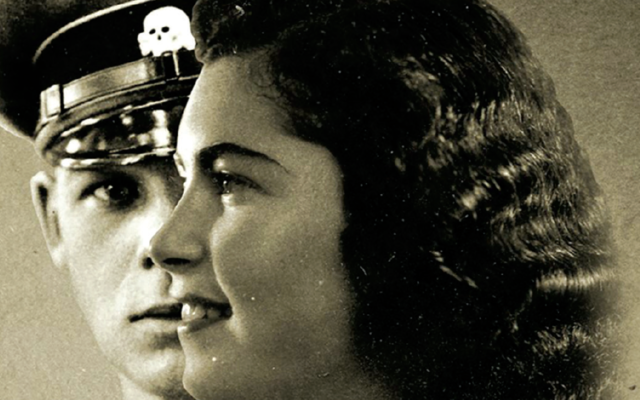AJFF Intro: Love It Was Not
"Love It Was Not" tells the real-life story of Helena Zitron, an Auschwitz concentration camp prisoner who captured the heart of an SS officer.
To prepare you for 21st year of the Atlanta Jewish Film Festival, completely virtual-for-the-first time as you’ve never seen before, we bring you 21 previews spotlighting the breath of films offered for your home viewing. The films, which represent more than half of those in the AJFF lineup Feb. 17-28, include classics, intimate family dramas, upbeat comedy and historic documentaries. Sit back and relax as the AJFF brings us together through film.
The adage ‘truth is stranger than fiction’ best sums up this extraordinary documentary film, which was the winner of the Israeli competition at Docaviv 2020. The film tells the story of Slovakian Helena Zitron, who was on the first transport of 1,000 women, arriving in Auschwitz in March 1942. She subsequently developed a relationship, based less on power dynamics than on actual affection, with an SS officer not much older than herself, which likely led to her survival.
In Helena’s telling, after being chosen to sing at the SS officer’s 20th birthday celebration in December 1942, performing the German song “Love It Was Not,” he tearfully approached her and politely asked her (“like a human being”) to sing it again. In that moment, their dangerous and forbidden relationship was forged.
The film uses archival footage, as well as firsthand accounts provided by several other women (now in their 90s, yet very well-spoken) who worked alongside Helena in the ‘Kanada’ facility at Auschwitz, to unravel this amazing, yet tragic, tale.
Creatively executed, using photomontages and snippets of interviews to illustrate the story, “Love It Was Not” is both jaw-dropping and a pleasure to watch. There are unexpected twists and turns throughout, the most astonishing of which is Helena being summoned to testify at her former paramour’s war crimes trial in Austria in 1972, 27 years after their last encounter.
Because the film successfully conveys the complexity of Helena’s story, how she’ll testify – either by trying to save the man who saved her or as a proud Jew condemning the brutal Nazi he was to inmates other than herself – is basically unpredictable. As viewers, you watch this documentary conflicted, wondering whether the SS officer was good or evil, whether Helena was selfish or caring, and so forth. Like all successful films, this one leaves you wanting to know more and thinking about it for days on end. In my humble opinion, this is one of the more unique and poignant Holocaust films the AJFF has screened in years.




comments